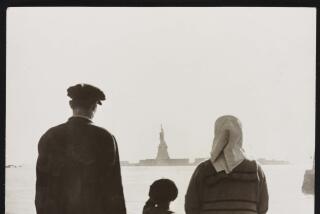Complex portrait of an American literary icon
H.L. MENCKEN -- Henry to his friends -- has always been a hard nut to crack. Now Marion Elizabeth Rodgers has, for once and for all, just about done it. Her “Mencken: The American Iconoclast” tells us things we didn’t know about the journalist, editor, social critic and wit -- and takes fresh looks at those we did.
In clear and forceful prose he would have approved of, Rodgers gives Mencken (1880-1956) his rightful place in American literature and life. Her book is long but captivating. She focuses on Mencken as a person, centering him in his beloved hometown, Baltimore, where for half a century he flourished as an editor and writer at the Baltimore Sun.
By the mid-1920s, he was the happy scourge of Puritanism in American life and letters. He was the country’s tireless discoverer of new writers and its foremost mocker of Prohibition. No one was more deft an enemy of governmental or societal censorship. In 1925 he personally promoted the Scopes trial, in which the lawyer Clarence Darrow humiliated William Jennings Bryan and the anti-Darwinists.
Everyone wanted to know Mencken’s opinions about everything. In one year, he was mentioned in 500 newspaper editorials. If you were young and literary and wanted to get hold of life in this big unruly democracy, you wanted to be just like him.
Only 10 years later, the glow was beginning to fade. Mencken’s roots in German Baltimore had led him beyond his philoteutonicism in World War I into a blind defense of Hitler. His congenital suspicion of government had congealed into a stubborn hatred for Franklin D. Roosevelt as a “dictator.”
As quickly as he had risen like a rocket over the literary and social scene after the turn of the century, by its halfway mark he was sputtering and descending.
Mencken had a silencing stroke in 1948 and would die eight years later. Despite some sensitive accounts of his work in the next 50 years, his reputation did not recover. It was particularly damaged by further revelations about his disparaging attitudes and remarks about Jews that were egregious even for his time and place.
Mencken as the spoiled child of an adoring mother and family emerges vividly, imp-like, from Rodgers’ pages. He lived with his mother in the comfortable west Baltimore townhouse he was born in until she died at 67. He left that house for only five years, during those of his bittersweet marriage to the sickly Sara Haardt.
Everyone in Mencken’s circles in Baltimore and New York knew he liked women; just how many of them, and how exuberantly, had not been fully revealed until Rodgers’ book, which draws on unpublished material. He was a regular stud, and a bounder too, professing undying love -- until she, who ever she was, got too close. But his love for Sara was tender and deep.
Mencken’s strengths turned out to be his weaknesses. His early enthusiasm for Nietzsche -- his 1907 book “The Philosophy of Friedrich Nietzsche” was for years the leading American introduction to the moody, brilliant German -- hardened into an admiration for the “superior” man, one of whom, of course, Mencken considered himself.
His enthusiasm for some naturalistic American writers -- he championed Theodore Dreiser, Willa Cather, Stephen Crane, Walt Whitman and most of all Mark Twain -- faltered when he could not appreciate the writers of the next generation such as William Faulkner, Thomas Wolfe and John Steinbeck.
Yet his place in American history seems, half a century after his death, to be secure. For all his goggle-eyed admiration of things German, he was an early and effective promoter of realistic writers of American life, notably in his magazines the Smart Set and the American Mercury.
He was the first widely recognized defender of the country’s language as a force of its own; his various editions of “The American Language” are a model of amateur scholarship. No American has written more easily or joyfully as Mencken did in his memoirs “Happy Days,” “Newspaper Days” and “Heathen Days.”
Mencken’s endless poking at the “Boobus Americanus” -- those gullible members of the American middle class -- may seem tiresomely repetitious now, 100 years after he started it. But because of him, the critter is less boobus and more authentically Americanus.
Anthony Day, a former editor of The Times editorial pages, is a regular contributor to Book Review.
More to Read
Sign up for our Book Club newsletter
Get the latest news, events and more from the Los Angeles Times Book Club, and help us get L.A. reading and talking.
You may occasionally receive promotional content from the Los Angeles Times.







